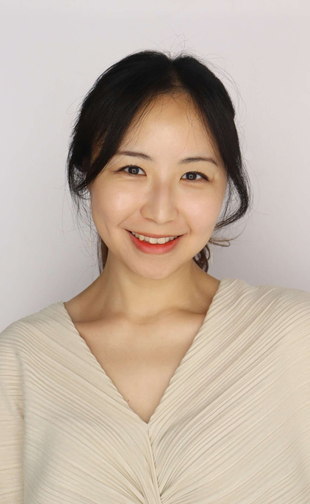Earn a Practical, Interdisciplinary Master’s That Puts People First
The Master’s in Human Centered Design spans 9 courses (32 credits) and equips graduates to lead design initiatives across technology, healthcare, education and other industries. Rooted in empathy and evidence, this interdisciplinary curriculum blends design thinking, research, cross-functional collaboration, leadership, human-computer interaction (HCI), and cognitive science.
Become a nimble problem-solver, tackling issues on client-driven projects and exploring creative approaches under the guidance of BU’s expert user experience designers, researchers, and writers.
Ready to learn more? Fill out the interest form to get updates and announcements regarding the application, deadlines, and events.
Choose BU, Because Human Centered Design Is Inseparable From Our Work as Responsible and Effective Communicators
- Communications perspective: Gain a competitive edge in storytelling, persuasion, and stakeholder communication at one of the few HCD degrees housed within a communications college.
- End-to-end HCD training: Learn the holistic design process, from user research and ideation to prototyping and implementation, and gain mastery in digital product design.
- Interdisciplinary faculty: Study with design practitioners and scholars specializing in HCI, AI, ethnographic design, and complexity science across media science, advertising, journalism, and strategic communications.
- AI-aware curriculum: Take a thoughtful approach to using generative and assistive AI tools across coursework through a human-centered and ethical framework.
- Ethical & inclusive design focus: Emphasize human needs, accessibility, and moral considerations when designing for high-stakes, complex domains–from life-critical systems to ambient environments.
- Career readiness: Build a robust portfolio through real-world projects, soft skills, industry partnerships, and a capstone or thesis that mirrors employer expectations.
- Diverse pathways: Open to students from any undergraduate background, ideal for career-changers, humanities, or engineering majors, all learning a shared foundation in HCD.
Meet Employer Demand Across HCD/UX/UI Domains
Graduates of the MS HCD program are prepared to assume leadership roles across technology, healthcare, education, startups, design agencies, government labs, non-government organizations, and more. With strong UX/UI, research, and strategy skills, alumni are well-positioned to guide the strategic design and execution of innovative experiences across a variety of roles, such as:
- Product Designer
- UX Designer
- UX Researcher
- UI Designer
- Product Manager
- Content Strategist
- Project Manager
- Usability Evaluator
- Human-Centered AI Specialist
Learn Through a Holistic Human Centered Design Curriculum
This hands-on, research-driven program emphasizes practical application and is grounded in a holistic design process.
Core Sequence (Required — 7 courses/24 credits)
- Human-Centered Design I (4 credits) — Learn the holistic design process: setting product vision, applying user research, leveraging design thinking and ideation and testing solutions to create empathetic and inclusive experiences.
- Research Methods in User Experience Design (4 credits) — Master a range of quantitative and qualitative research methods to effectively apply them throughout the design process.
- Ideation & Design Thinking (2 credits) — Generate, refine, and evaluate creative solutions to complex problems. Learn structured brainstorming, design sprints, and collaborative workshops.
- User Interface Design & Prototyping (2 credits) — Create intuitive, accessible digital interfaces and bring concepts to life with prototyping tools. Learn visual hierarchy, interaction patterns, and usability principles.
- Human-Centered Design II (Capstone) (4 credits) — Lead a client- or research-driven project by applying the holistic design process in real-world contexts, integrating project planning, leading cross-functional collaboration and the essential soft skills of human centered design.
- UX Writing & Information Architecture (4 credits) — Shape how users navigate and understand products through structure and language. Study content strategy, microcopy, taxonomy, and information architecture.
- Product Management & Leadership OR Leadership Communication (4 credits) —
- Product Management & Leadership: Define product vision, manage backlogs, align cross-functional teams around user-centered goals, and master roadmap planning, prioritization, and stakeholder communication.
- Leadership Communication: Develop storytelling, feedback, negotiation and influence skills to lead cross-disciplinary teams with empathy and clarity.
Electives (Choose 2 courses/8 credits)
- CM5XX Data Visualization: Learn to translate complex data into compelling visual narratives. Explore visual encoding, perception, and design tools to communicate insights clearly.
- CM501/CM529 Design Strategy & Software: Build a foundation in visual design by mastering industry tools and covering essential fundamentals like typography, color theory, Gestalt principles, layout, and visual storytelling.
- CM523 Design & Interactive Experiences: Design interactive projects across platforms using motion, media, and contemporary tools and techniques. Focus on user behavior, accessibility, experience design, and creative coding.
- CM710 Media Theory: Explore theories of mediated communication, mobile and social media systems, and analyze how media shape identity, power, and public discourse.
- CM713 Media Law & Policy: Understanding legal frameworks, regulatory policy, intellectual property, privacy, and freedom of expression as they relate to communication and media technologies.
- CM519 Interactive Marketing Strategy: Develop data-driven marketing strategies that integrate user experience and digital engagement. Learn SEO, social media, and performance analytics techniques.
- CM511 Design & Art Direction: Advance your visual storytelling and creative leadership. Learn layout, typography, systems, and brand cohesion across multimedia campaigns.
- CM527 Brand Experience Marketing: Craft cohesive brand experiences that emotionally connect with audiences. Integrate messaging, identity, and interactive touchpoints along the customer journey.
Meet the Faculty in Human Centered Design and UX at Boston University
The MS HCD faculty from BU’s College of Communication include researchers and practitioners in media science, digital product design, strategy, and communication.
Prepare Your Application: Admission Requirements for the MS in Human Centered Design
The MS in HCD program welcomes applicants from any academic background, as our foundational courses ensure all students reach a common level of design competency.
- Required Materials:
- Online application
- Transcripts from all colleges and universities attended
- Two letters of recommendation/reference letters
- Resume/CV
- Essay
- Online Written & Video Questions through Kira Talent
- International Applicants: English proficiency exam for applicants from a non-English speaking institution, though waivers may be granted.
- GRE: Not required.
Compare Programs
Learn more about our other graduate programs in communication and media, including:
- MS in Media Science: Choose Media Science if you love digging into data, testing messages, and backing recommendations with evidence. It’s ideal for those eyeing consultant or research-heavy roles. It also offers a Marketing Communication Research concentration.
- MA in Emerging Media Studies: Choose Emerging Media Studies to explore how digital technologies (from social media to AI) are reshaping communication and society. Build and apply research skills in a year-long client project.









